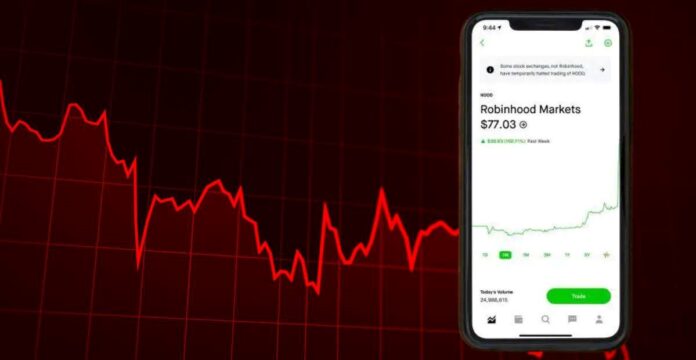Robinhood, a well-known commission-free trading platform, has become a significant player in the financial markets. However, concerns about its financial stability occasionally arise, leading many investors to wonder: What happens if Robinhood goes bankrupt? This article explores the potential consequences, protections in place, and the steps investors should take in such a scenario.
Robinhood’s Business Model
Robinhood operates as a brokerage that facilitates stock, options, and cryptocurrency trading. Unlike traditional brokerages, it generates revenue through payment for order flow (PFOF), margin lending, and premium account subscriptions. While this model has been lucrative, it also raises concerns about its sustainability, especially during financial downturns or regulatory changes.
What Causes Brokerages to Go Bankrupt?
Brokerage firms like Robinhood can face financial trouble due to several reasons:
• Regulatory Fines: Robinhood has faced numerous fines from regulatory bodies, which can strain its financial position.
• Market Volatility: Severe fluctuations in stock prices can lead to liquidity issues.
• Declining Revenue Streams: If regulators limit or ban payment for order flow, Robinhood’s primary revenue source could be affected.
• Operational Failures: System outages and security breaches can erode user trust and lead to mass withdrawals.
What Happens to Your Stocks and Cash?
If Robinhood were to go bankrupt, customers may have several protections in place to safeguard their assets.
Securities Investor Protection Corporation (SIPC) Coverage
Robinhood is a member of the SIPC, which protects securities and cash in brokerage accounts up to $500,000 (including $250,000 for cash claims). This means that even in the event of bankruptcy, investors’ stocks and ETFs are typically safe, as they are held separately from Robinhood’s corporate assets.
However, SIPC does not protect against losses due to market fluctuations or investment risks.
What About Cryptocurrency Holdings?
Unlike stocks and ETFs, cryptocurrencies on Robinhood are not protected by SIPC insurance. If Robinhood goes bankrupt, users holding Bitcoin, Ethereum, or other digital assets on the platform might face significant risks. Since Robinhood Crypto operates separately from Robinhood Financial, it is unclear how customer assets would be handled in the event of insolvency.
Would Customers Lose Their Investments?
In most cases, investors should not lose their stocks, ETFs, and options. These assets are held separately and can be transferred to another brokerage. However, any cash balance exceeding SIPC limits, crypto holdings, and margin accounts could be at risk.
The Transfer Process to Another Broker
If Robinhood filed for bankruptcy, another brokerage might acquire its client accounts. Typically, accounts are transferred automatically, but users may also initiate an Automated Customer Account Transfer Service (ACATS) request to move their holdings to another firm like Fidelity, Charles Schwab, or E-Trade.
What Should Robinhood Users Do to Protect Their Assets?
Given the risks, investors should take proactive measures:
1. Keep Cash Balances Low
SIPC insurance covers up to $250,000 in cash, so it’s wise to limit uninvested funds in Robinhood accounts.
2. Transfer Cryptocurrency to External Wallets
Since crypto holdings are not SIPC-insured, investors should consider transferring their assets to a cold storage wallet or another exchange with stronger regulatory oversight.
3. Diversify Brokerage Accounts
Relying solely on Robinhood could be risky. Maintaining accounts with multiple brokers reduces the impact of a potential Robinhood failure.
4. Monitor Regulatory Changes
Given Robinhood’s reliance on payment for order flow, any regulatory changes affecting this model could impact its stability. Staying informed can help investors make timely decisions.
5. Use a Brokerage with Stronger Protections
Traditional brokers such as Fidelity, Vanguard, and Charles Schwab often have additional insurance beyond SIPC coverage. Moving assets to these firms may offer extra security.
Lessons from Past Brokerage Failures
Looking at past brokerage failures like Lehman Brothers (2008) and MF Global (2011), investors can learn valuable lessons:
• Lehman Brothers: Customers faced prolonged legal battles to recover assets.
• MF Global: SIPC played a role in recovering funds, but some investors lost portions of their holdings.
• Madoff Investment Scandal: Fraudulent activities resulted in massive financial losses, emphasizing the importance of vetting financial institutions.
These examples highlight the importance of using regulated and well-established brokers.
Conclusion
While Robinhood’s business model is profitable, its reliance on PFOF and regulatory scrutiny pose risks. If Robinhood were to declare bankruptcy, most customers’ investments in stocks and ETFs would likely remain safe due to SIPC coverage. However, crypto assets, margin accounts, and excess cash holdings could be vulnerable.
To safeguard investments, users should consider diversifying brokerage accounts, transferring crypto to external wallets, and keeping cash balances within SIPC limits. Staying informed and proactive is the best way to mitigate potential financial risks.

Susan Paige is a prolific female writer known for her insightful analyses on business news, particularly focusing on the stock market, cryptocurrency, and related topics. With a keen eye for trends and a knack for distilling complex concepts into accessible pieces, she captivates readers with her expertise and clarity.

